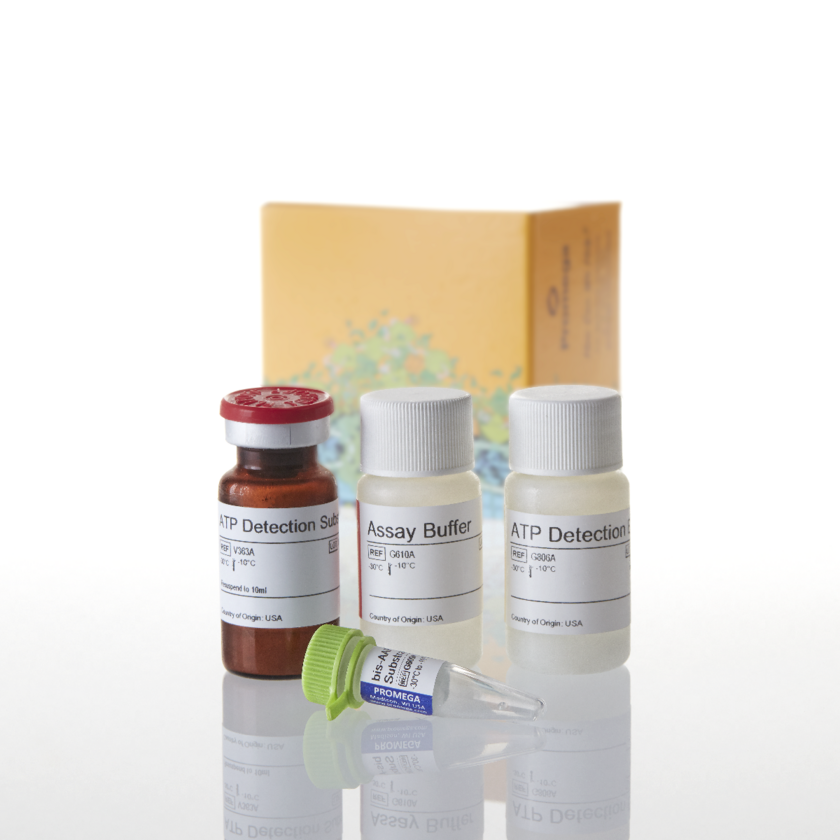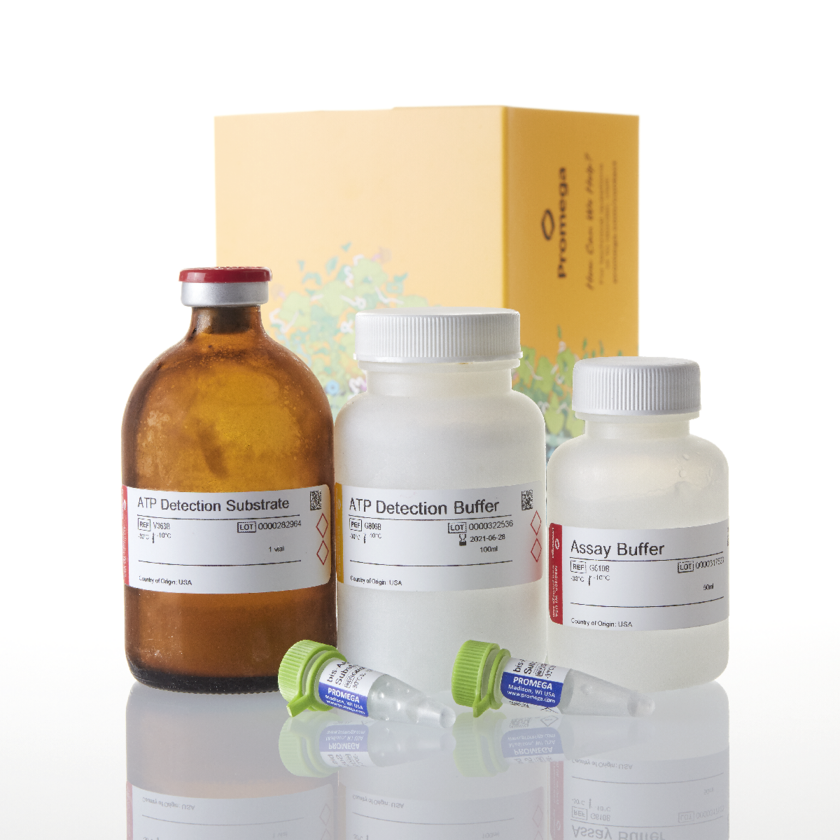

Promega
Mitochondrial ToxGlo Assay
The Mitochondrial ToxGlo Assay is a cell-based method that employs a sequential-addition, multiplexed assay chemistry for predicting potential mitochondrial dysfunction as a result of xenobiotic exposure. The assay is based on the differential measurement of biomarkers associated with changes in cell membrane integrity and cellular ATP levels relative to vehicle-treated control cells during short exposure periods. Cell membrane integrity is first assessed by measuring the presence or absence of a distinct protease activity associated with necrosis using a fluorogenic peptide substrate (bis-AAF-R110) to measure "dead-cell protease activity". Next, ATP is measured by adding an ATP-detection reagent, resulting in cell lysis and generation of a luminescent signal proportional to the amount of ATP present. The two sets of data can be combined to produce profiles representative of mitochondrial dysfunction or non-mitochondrial-related cytotoxic mechanisms.
